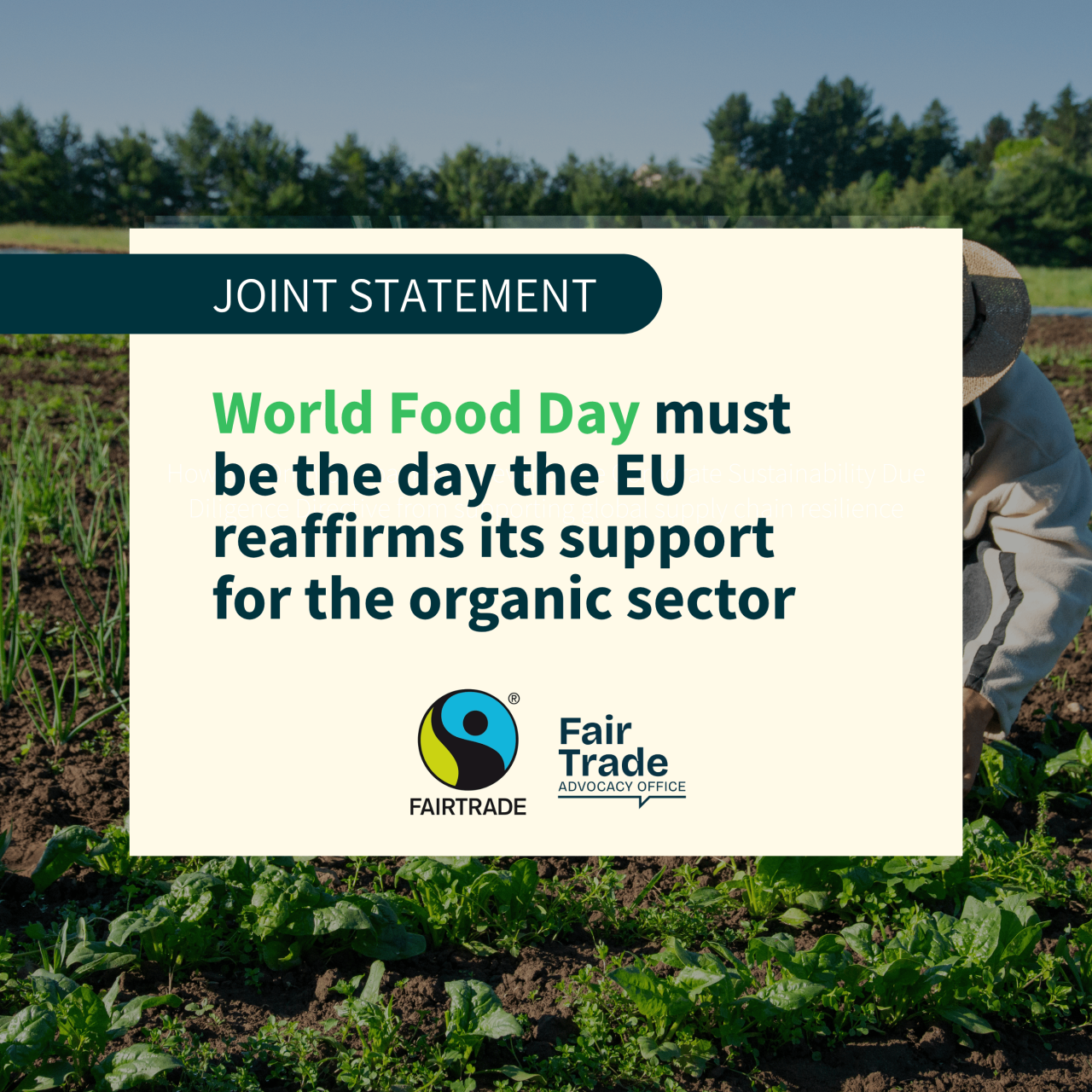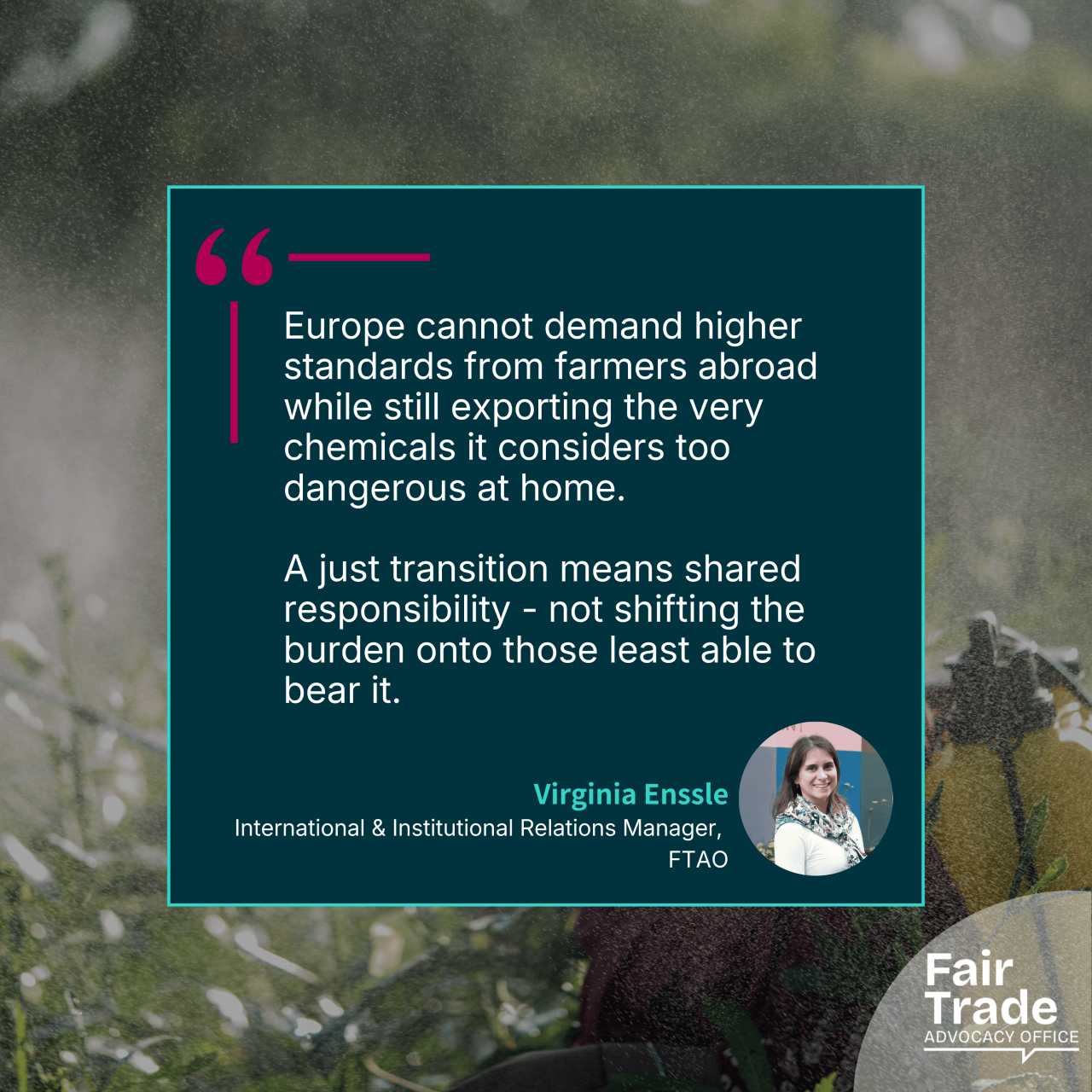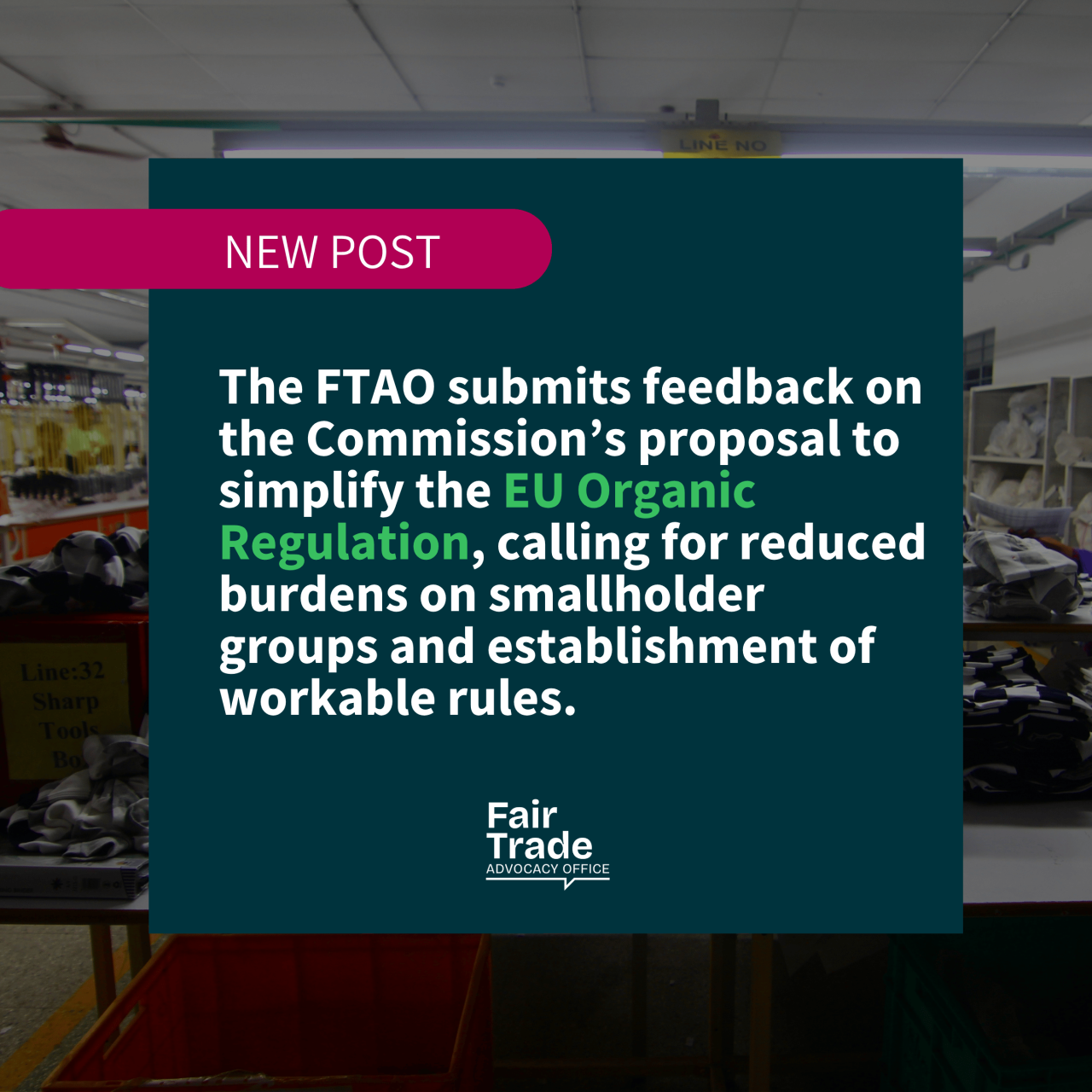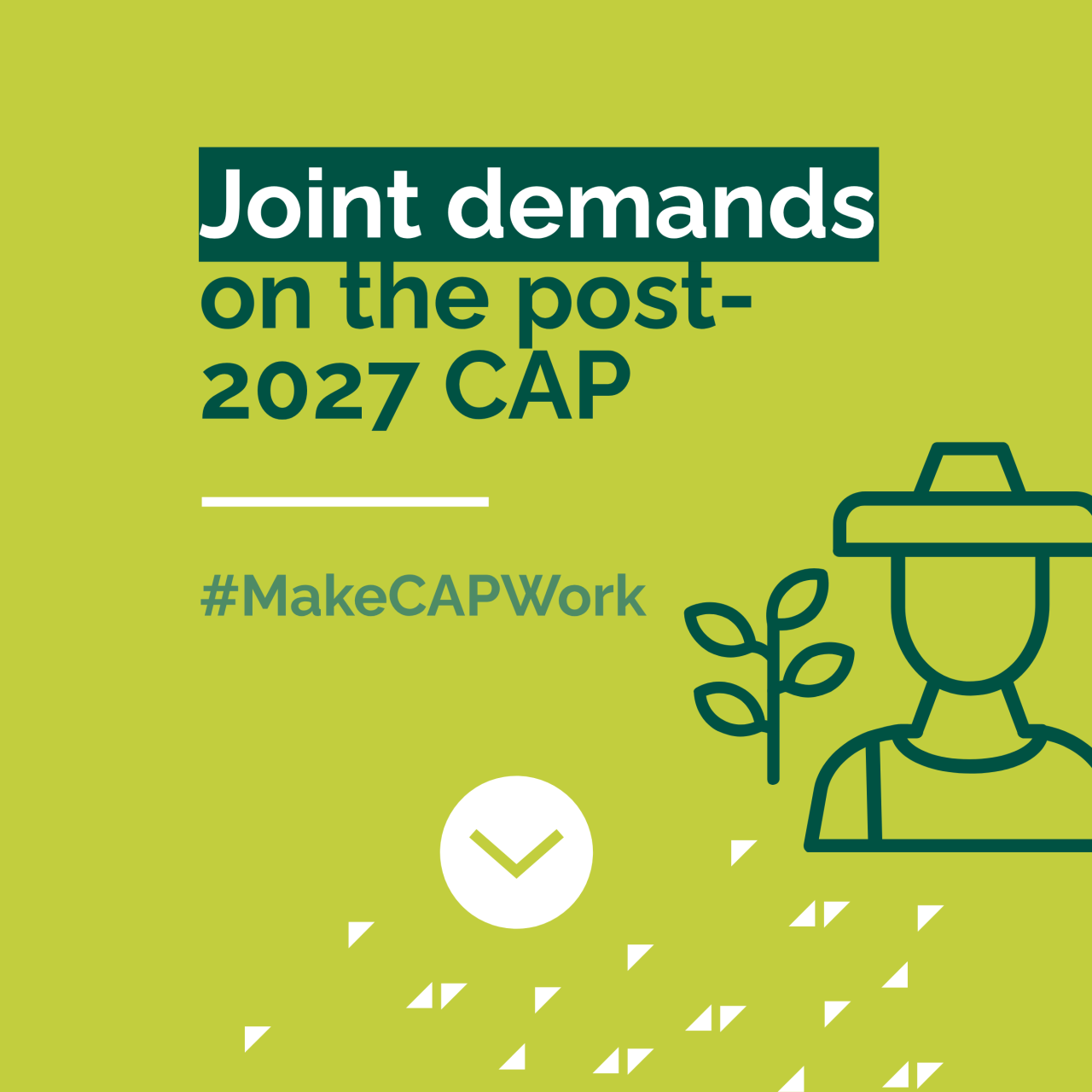World Food Day must be the day the EU reaffirms its support for the organic sector

This very celebration is at risk, especially if challenges created by the new EU Organic Regulation are not urgently addressed. In fact, small producers in third countries could be forced out of the market, putting at stake the diversity and accessibility of organic food that European consumers increasingly seek.
A policy that says “compliance” but risks exclusion
The shift from equivalence, allowing different paths to the same organic outcome, to full compliance with EU rules was always going to be demanding. Raising standards globally is a laudable goal, but the implementation has been challenging: new “group of operators” rules often conflict with national laws in producing countries; inspection and sampling rates drive up costs; and guidance remains opaque and scattered. The EU is not “raising the bar” so everyone can clear it. It is raising it, then moving it, mid-jump.
While the European Commission’s recent decision to reopen the basic act of the Regulation is a positive step, it may come too late to prevent harm. Producers in third countries have already faced soaring costs, legal obstacles, and many have already abandoned the EU organic certification. This revision is a critical opportunity to fix these problems, but a few extra months without structural fixes will simply defer the crunch. Producer groups need time and support to legally reorganise, upgrade internal control systems, and finance the much higher certification and compliance costs. Many have called for a longer transition, specifically to prevent mass desertification and disruption to trade.
The temporary derogation that the EU adopted last year allowed products certified under the old ‘equivalence’ system to continue entering the EU until 15 October 2025. With the grace period now expired, certificates issued under the old regime are no longer valid, and all consignments must come from operators fully certified under the new rules. Although this measure helped avert a crisis in early 2025, the European Commission has not during this time addressed the bottlenecks and burdens that have built up in the system, impacting hardest on those least able to absorb them. The Commission’s announcement of a targeted revision must therefore translate into urgent action.
It's smallholders, producers, and consumers who bear the cost
Fair Trade organisations, representing hundreds of thousands of smallholder families, report that about 69% of producer organisations are struggling to comply, and one in five are not preparing to renew EU organic certification at all, citing the complexity and cost of the new requirements. In many cases, certification costs have jumped by 50% to 200%, figures that would push even resilient cooperatives to the brink. If nothing changes, producers will exit organic and lose access to the EU market (estimated 19% of Fairtrade-organic certified cocoa, coffee and banana producers), and Europe will lose the very partners who have built its organic aisles over decades. While small producers risk being squeezed out, bigger players could gain more advantage, replacing long-standing self-employed farming families with often-precarious farm labour, leading to serious economic, social and environmental consequences.
It will not take long until consumers feel the impact. Organic products will become harder to find, and prices will soar as small farmers are pushed out of the market. The Commission’s own Eurobarometer shows that price and availability are already obstacles for citizens who want to buy organic: Europeans widely perceive organics as more expensive, and in a significant number of countries, people say organic products are hard to find in local shops. If smallholders are priced out, those obstacles will only grow, exactly when public demand for safe, healthy, sustainable food is supposed to be rising.
A World Food Day course correction
This World Food Day, the European Commission has an opportunity to demonstrate its genuine support for organic farmers worldwide by deploying a “just implementation” package for the EU Organic Regulation, which includes:
- Giving producers time to adapt. Extend the transition period to at least 31 December 2026, as many groups (including farmers and cooperatives) have urged, to give producer organisations a full cycle to adapt, without facing mass exits from organic farming.
- Funding targeted support for smallholder compliance. Partner with the European Commission’s Directorate-General for International Partnerships and Member States to finance legal restructuring, internal control systems, and residue testing capacity for producer groups, prioritising countries and products most at risk of supply disruption.
- Fixing the rules that don’t match reality.
- Align “group of operators” definitions with national legal frameworks so compliance is actually registerable.
- Recalibrate inspection/sampling rates to be risk-based and proportionate.
- Revisit the €25,000 turnover threshold for group membership so that temporary price spikes for commodities (coffee, cocoa) don’t push genuine smallholders into unaffordable individual certification.
- Define legal entity eligible for group certification as a group of producers with a minimum of small farmers defined as farmers whose estimated individual cert costs will be higher than 2% of their 5-year averaged organic turnover and supplying at least 75% of the product volume, and a maximum of 25% volume supplied by larger members whose cert costs are estimated lower than 2%. - Making the rulebook usable. Publish a consolidated, plain-language set of EUOR requirements for third-country operators, along with a robust, searchable FAQ with binding clarifications. Predictability is a compliance tool; ambiguity is a cost driver.
Any revision of the regulation must keep the bar high and establish clear, predictable rules that ensure smallholders remain in the system, supply chains keep flowing, and European consumers continue to have access to healthy, sustainable organic food.
World Food Day is meant to celebrate progress toward fairer, healthier food systems. Let’s make sure 15 October doesn’t become a countdown to scarcity. Europe can either keep organic production inclusive and growing, or preside over a rules-driven contraction that betrays farmers abroad and families at home. The choice is the Commission’s and the consequences will be for everyone.
Contact
Virginia Enssle, International and Institutional Relations Manager, Fair Trade Advocacy Office (FTAO), enssle@fairtrade-advocacy.org
Andreas Kratz, Director Global Products, Programs & Policy and Director Standards & Pricing, Fairtrade International, a.kratz@fairtrade.net
.png)
More From The Workstream

Fair Trade Movement calls on EU to adopt a just, global phase-out of Highly Hazardous Pesticides

The Fair Trade Movement welcomes amendments proposed by the European Commission to group certifications in the EU Organic Regulation

The FTAO's feedback on the European Commission's proposal for the simplification of the EU Organic Regulation
